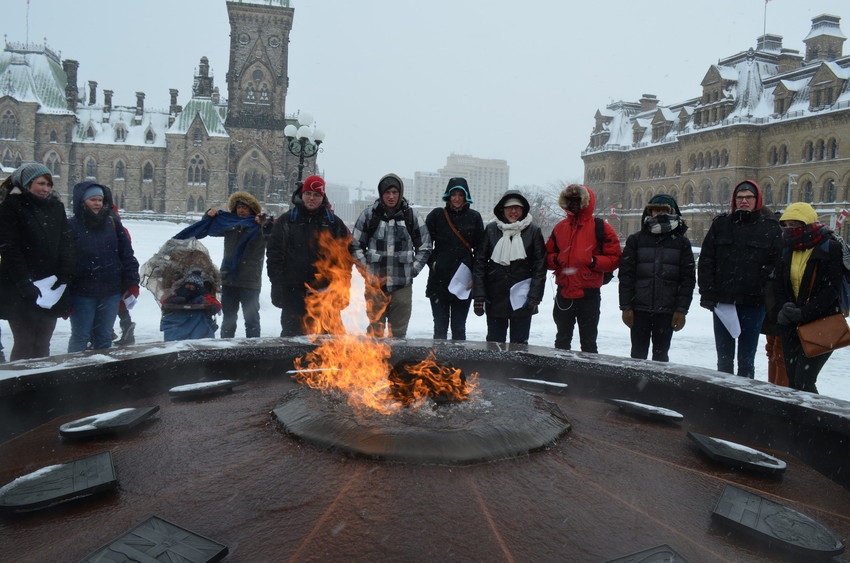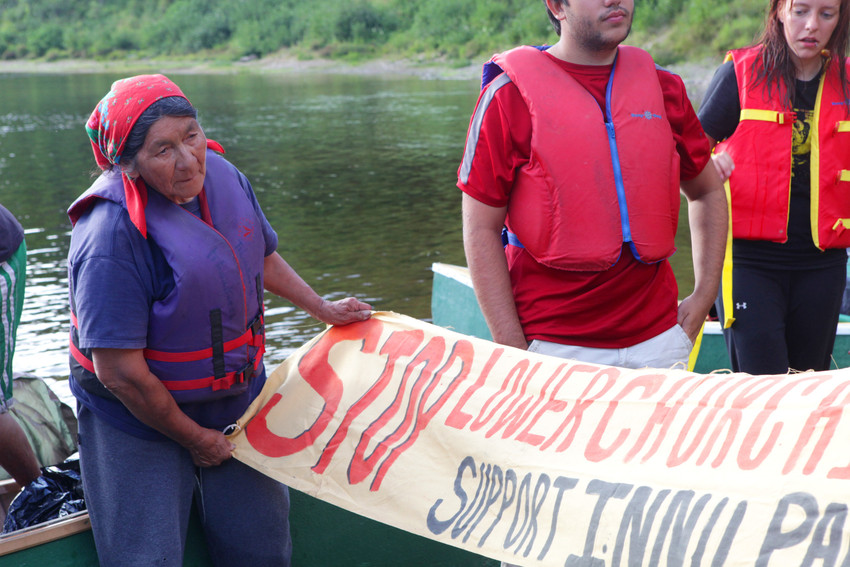Individual articles from the Summer 2020 issue of Intersections will be posted on this blog twice per week. The full issue can be found on MCC’s website. This article consist of five reflections which will be posted separately.
Beginning with the decision by some MCC workers from the United States to remain in Vietnam after the withdrawal of U.S. troops from the country on March 29, 1973, one form MCC’s peace witness has taken has been a witness of presence within so-called “enemy” contexts. Such peace witness included placing graduate students behind the Iron Curtain during the Cold War tasked with connecting to and supporting churches in the Eastern bloc, assigning aid workers to live and work in Iraq before and after the U.S. invasion of the country in 2002, placing more graduate students at an Islamic studies center in Qom, Iran, seconding staff to work with health ministries in Afghanistan and sending agronomists to make extended program support visits to the Democratic People’s Republic of Korea (DPRK, or North Korea). Below are reflections from MCC workers who were involved in such peacebuilding-as-presence initiatives on the joys and challenges they faced.—The editors.
Iraq
We often think of two U.S.-led wars in Iraq. One began in January 1991 in response to the Iraqi invasion of Kuwait, ending just over a month later. The second Iraq war began in March 2003 and ended in December 2011. But it is more accurate to say that it was just one long war. The no-fly zones established over northern and southern Iraq from 1991 to 2003 included multiple air strikes and dozens of cruise missiles bombing Iraqi targets, coupled with a debilitating sanctions campaign and a long legacy of depleted uranium.
I arrived in the middle of this long war. From January 2004 to June 2006, I was the MCC Iraq program manager. My job had two components. First, I was to teach English at Babel College, a Chaldean Catholic college and seminary in Baghdad, the Iraqi capital. Second, I was tasked with cultivating relationships with potential MCC partners, whether churches, Islamic organizations or emerging local NGOs. In doing so, I was merely continuing the work that had begun in 1998 with Wanda Kraybill, the first MCCer in Iraq. From 1998 to 2003, Wanda, and later Carmen Pauls and then Edward Miller, were in Iraq as a gesture of solidarity, especially with the churches there. Placing these MCC workers in Iraq was a way of saying: “Not all Westerners share the U.S. government’s position and not all Christians in the U.S. think their citizenship is more important than their baptism.” MCCers worked alongside the Middle East Council of Churches, the Iraqi Red Crescent Society and the Australian branch of CARE to mitigate the effects of the U.S. sanctions and to call attention to the slow violence of depleted uranium munitions, but they did so with limited resources. Importantly, this was a time when there was virtually no Western presence in Iraq. The MCC difference was, first and foremost, simply being there as friend instead of enemy, despite our U.S. citizenship. We took a stand against the sanctions campaign, both as advocates at home in Washington, D.C., and through aid projects on the ground in Iraq.
Placing MCC workers in Iraq was a way of saying, “not all Westerners share the U.S. government’s position and not all Christians in the U.S. think their citizenship is more important that their baptism.”
But after the U.S.-led invasion of 2003, all that changed. Specifically, two things shifted dramatically and both made MCC’s position harder to maintain. First, instead of a few western NGOs with limited resources, Iraq was flooded with western NGOs with billions to spend. Instead of being a lone NGO in defiance of the international community’s aggression, MCC was now just one small cog in a giant aid industry. That industry, as I came to see it after I arrived in January 2004, had three distinct factions. The first were what we might call the “occupying NGOs,” indebted to USAID and the U.S. State Department and (some eagerly, some reluctantly) a key part of the U.S. war effort. The second was what I affectionately called the humanitarian fundamentalists. These were primarily European NGOs committed to the principled tradition of humanitarian neutrality that is best represented by the International Committee for the Red Cross (ICRC) and Médecins Sans Frontière (MSF). The third were the left-wing activist NGOs who were willing to abandon the neutrality of the second group in pursuit of their anti-war agenda.
MCC was an odd fit with these three groups. While philosophically, practically and socially most distant from the U.S. NGOs, we couldn’t get away from the fact that most of the MCCers involved were U.S. citizens. We became closest to the humanitarians and the activist NGOs, but for that to happen they had to overcome their wariness of both our citizenship and of our faith commitments.
The second change was that aid workers were now vulnerable in a way they had not been before 2004. In April of that year, the Iraqi insurgency began taking hostages. A Wikipedia page, “Foreign Hostages in Iraq,” lists over 200 hostages, the vast majority between 2004-2006. At least eight of those were close colleagues of MCC and of those eight, three were killed. It would be convenient if the ones kidnapped were the ones with the closest ties to the U.S. and the invading military coalition. But that wasn’t the case. It was the ICRC compound in Baghdad that was attacked in 2003. In the eyes of the insurgency, we were all enemies. In other words, it became harder to imagine that MCC, or any non-coalition aid agency, was either neutral or on the side of Iraqis. The whole notion of ‘sides’ had gotten scrambled.

Evacuated to Jordan, the humanitarian fundamentalist and activist NGOs had a standard explanation. “Humanitarian space,” the space in which aid agencies could carry out their mission to the most vulnerable, was only possible when aid agencies maintained their distance from the U.S. coalition power and when the U.S. coalition power respected that distance. Since so many NGOs had effectively become extensions of the occupation, whether willingly or because of USAID arm-twisting, that space no longer existed. In other words, the ICRC hadn’t been bombed because it was an enemy, but because the occupying NGOs had so muddied humanitarian space that it was no longer possible to tell the difference between the humanitarian fundamentalists and the occupation. In the space of just a year, MCC went from being the sole inhabitant of humanitarian space, to one of many organizations claiming humanitarian space, to witnessing the end of that space.
Meanwhile, the suffering of our Iraqi friends and colleagues increased exponentially. Caught between the coalition forces and the growing Iraqi insurgency, tens of thousands of Iraqis died and millions were displaced and remain displaced to this day. Those who remained had their lives disrupted and upended in all the countless ways that war wrecks societies—struggles to obtain food, healthcare, education and employment and lives of constant fear. From my apartment in Jordan in 2005, communicating with Iraqi friends and colleagues by phone and email and learning daily about the deteriorating conditions, we weighed commitments to solidarity with Iraqis alongside the risks. The former won out and MCC agreed to let me return to Baghdad, to an apartment above the flat where members of Christian Peacemaker Teams lived. CPT had never left. But just a week before my return flight, four of those CPTers were kidnapped. One, the only U.S. citizen, Tom Fox, was killed. Fifteen years later, MCC Iraq still does not maintain a presence in Baghdad.
Peter Dula is professor of religion and culture at Eastern Mennonite University. He worked with MCC in Iraq from 2004-2006.









